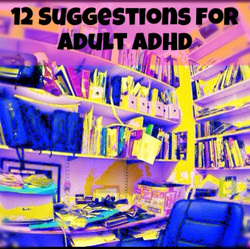 Photo Credit: sindesign via Flickr Photo Credit: sindesign via Flickr  Recently, I was following a conversation on r/adhd , a subreddit of the the popular discussion site, reddit.com. A frustrated young man was asking for suggestions for coping with ADHD symptoms, without medication. This kid was shouting, "Someone help me organize!" The resulting discussion produced several great suggestions for adults and teenagers struggling with ADHD. The following list has been distilled from that conversation, minus some of the more, um, colorful language ;). CONTINUE READING Help Me Organize My ADHD self/child/spouse 1. Cut Yourself Some Slack It's easy to be pretty hard on yourself, which leads to more anxiety and frustration. One redditor suggested, "Don't kill yourself if you're not on schedule. Everyone falls off schedule. Just get back on the horse." (redditor: 321_liftoff) While quality is important, often not completing a task will cause more problems than simply getting it done and turning it in. "Remember: completed at a 'meh' state is still: completed. Work to just get things done, regardless of the quality. Especially if you're struggling to maintain focus. If quality is a huge issue with the task, revisit it later if you can." (redditor: SketchyBones) 2. Redundancy "Have three of whatever you need on a day to day basis that is affordable. One for home, one for school, and one extra that goes with you at all times. I have a calculator at work in the lab, at home, and in by backpack that travels with me to school. Ditto for pens, pencils, writing objects, etc. I have glasses, but only two pairs, so one travels with me everywhere in my purse, and the other stays home." (redditor: 321_liftoff) 3. Consistency "Have a specific place for everything. When I go to work, my purse and backpack get stowed under my desk, and stay there. I take things out as needed, but they always get placed on my desk. When I come home, my purse goes on the table and my bag near my desk. This reduces losing the important stuff everywhere." (redditor: 321_liftoff) 4. Back Up Everything "Tech[nology] is... amazing, and one of the best tools for ADD/ADHD kids nowadays. I use Gmail to funnel all my important emails together, Google Tasks to make lists of things to do, and Google Calendar to keep my schedule. I use backup software like Dropbox to make sure my data is secure. If possible, I take notes on my computer which again go into cloud storage so even if I somehow lose my computer (unlikely, since it resides in very specific places), my data is safe." (redditor: 321_liftoff) 5. Reminders "Give yourself warnings. We have a tendency to lose steam on big or long term projects, so add random notifications to remind yourself they need to be done (Google Calendar is great for this)." (redditor: 321_liftoff) 6. Outlines "Write out clear, cohesive outlines. I know this seems stupid since everyone teaches you this, but it's really, really important. We have trouble organizing our thoughts, so this is a good way to clear them up." (redditor: 321_liftoff)
8. Use To Do Lists To do lists can be a great way to set small, manageable tasks. "For big tasks, divide the work up into sections. For example, you could have one task as 'research x, y, and z'. Once that's done, you can have 'write outline of paper, citing specific sources from research that will fit into each section', and then, 'write introduction'. This will make the work more manageable." (redditor: 321_liftoff) 9. Don't Underestimate Time Requirements "Schedule ample amounts of time for any given task. Got a homework assignment you think will take 1 hour, tops? Give it 2 hours on your schedule, because more often than not you'll realize the task takes a little more effort than initially predicted. If it doesn't, the extra time can be used to polish the assignment up, and once that's done can be used to treat yourself to some fun time." (redditor: 321_liftoff) 10. Use Background Noise "I find that music in the background is often helpful. I generally opt for upbeat, repetitive music. For instance, right now I'm typing up complete instructions for a security site. I'm listening to Pandora on "Parov Stella" which is Electro-swing." (redditor: PaulieRedcoat) 11. Get enough sleep, exercise & food These last two suggestions are my own, added to help flesh out the list. You could google "help me organize" all day long, but poor habits will sobotage any organizational efforts. Establishing a routine and making sure you get to bed on time, will help you get up on time, and make a rushed and anxiety-ridden morning less likely. Making sure that you eat often will also help. Some individuals will benefit from low-carb diets, though not all. Individuals with high anxiety will do better on a balanced diet, trading white carbohydrates (white pasta, white bread, potatoes) for whole grains (whole wheat pasta, brown rice, quinoa). 12. Check out neurofeedback & meditation Check out our post on how neurofeedback can help. These options can be used along with medication or on their own. The goal is to help the brain communicate more efficiently with itself. This allows for better decision making, more appropriate self-censoring (i.e. less sticking-of-one's-foot-in-one's-mouth), and increased self-regulation of attention and focus. Note about medication: One thing that was overwhelming from most of the redditors, was that medication was immensely helpful. One redditor noted that "I feel like 95% of the issues people post on this subreddit involve them not taking meds...." I don't want to seem like we are saying medication is mandatory, only that parents and those with adult ADHD seem to feel like medication is one of the most helpful options available. What have you tried to help organize yourself, a spouse or a child with ADHD? Leave us a comment and let us know what has or hasn't worked for you.
|
Nikki Schwartz,
|
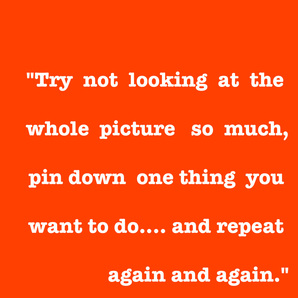

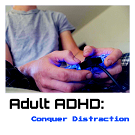
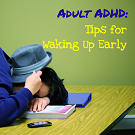
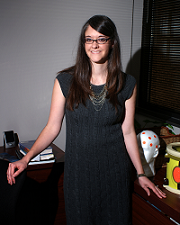
 RSS Feed
RSS Feed
